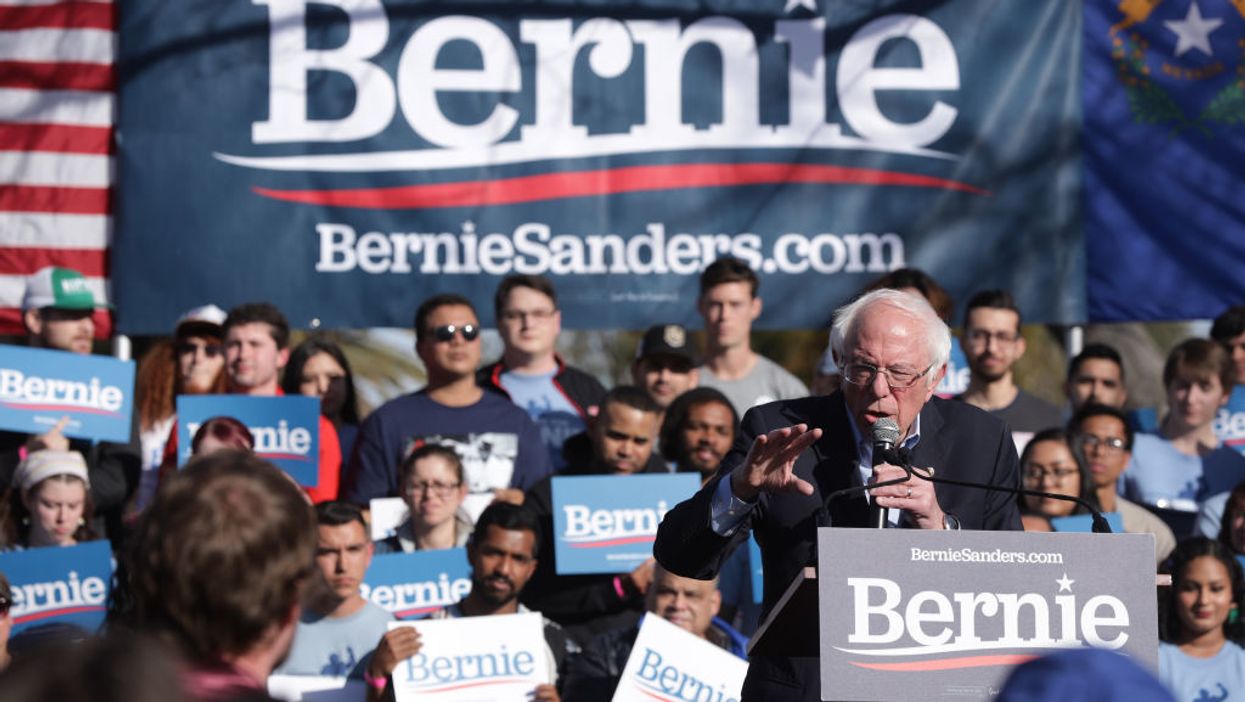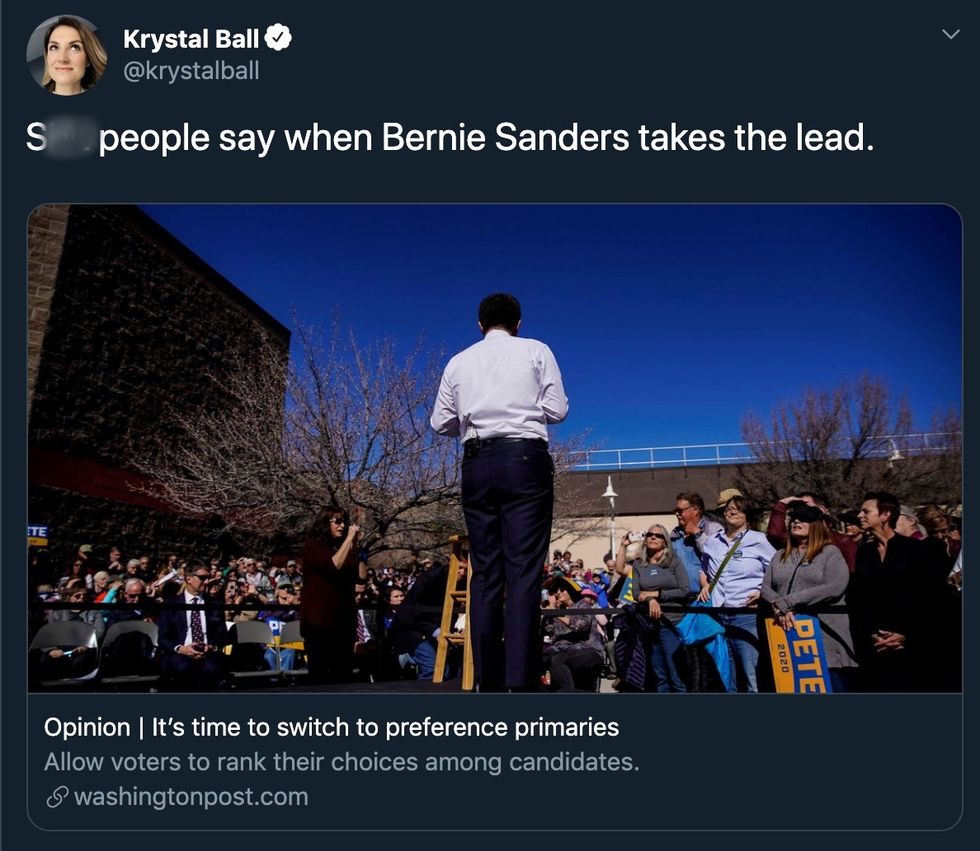
Photo by Alex Wong/Getty Images

That's ironic
A new opinion piece from the Washington Post makes the case that Democratic Party elites, and not the electorate, should have the ultimate authority to choose their party's nominee.
The article comes amid growing concern within the Democratic Party establishment over Sanders' surge to the top of the Democratic presidential field, a trend they see as harmful to the party's efforts to win back the White House in November.
The op-ed, titled, "It's time to give elites a bigger say in choosing the president," was written by Julia Azari, a political science professor at Marquette University. In the article, Azari argues that the current presidential nominating process is "clearly flawed" as questions surround whether the two leading candidates — Sen. Bernie Sanders (I-Vt.) and former South Bend, Indiana, Mayor Pete Buttigieg — will be able to the unite the party.
"A better primary system would empower elites to bargain and make decisions," she claims, before adding the qualifier that these elites would be "instructed by voters." But the driving force behind her new system, which she dubs "preference primaries," would certainly be the elites' ability to exercise their power.
So, what exactly would "preference primaries" look like? Here's the pitch:
Preference primaries could allow voters to rank their choices among candidates, as well as to register opinions about their issue priorities — like an exit poll, but more formal and with all the voters. The results would be public but not binding; a way to inform elites about voter preferences.
This process could accompany a primary of the sort we're used to — in which voters' first choices instruct the delegates, and preferences come into play only if there's no clear winner. The primaries could also be held in combination with elections for convention delegates so that these representatives are informed by their constituents' preferences. This would also help voters hold these delegates accountable in the future. The point is to build a way for party elites to understand what their base is thinking, and to allow them to bargain so that these different preferences and priorities can be balanced.
Of course, the upshot is that after all the preference gathering, the elites, or the party establishment, ultimately get to make the call.
This idea isn't sitting well with Sanders supporters, who view the op-ed as nothing but a swipe at the candidate and his grassroots following.

Other Twitter users relentlessly bashed the Washington Post, whose tag is "Democracy Dies in Darkness," for ironically publishing an article calling for less democracy.